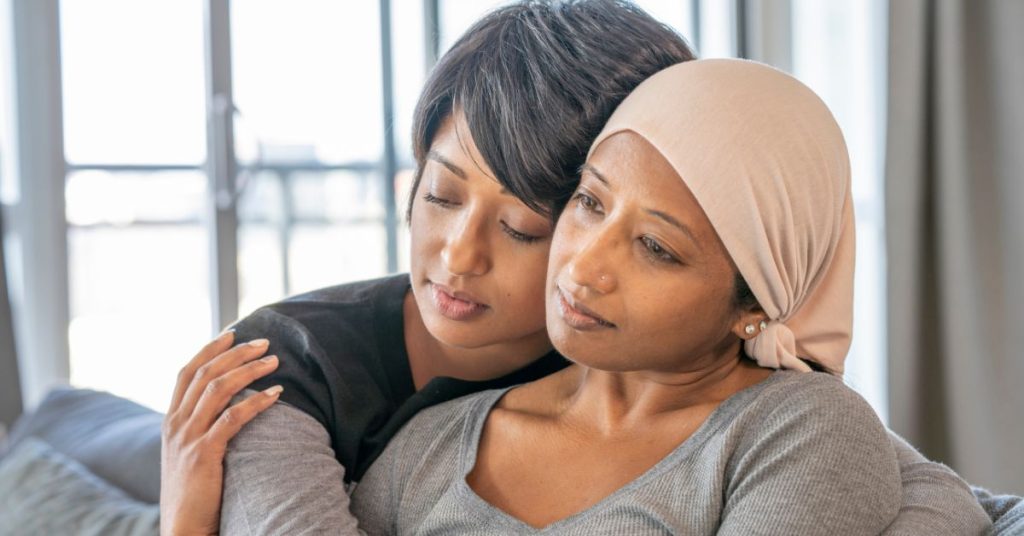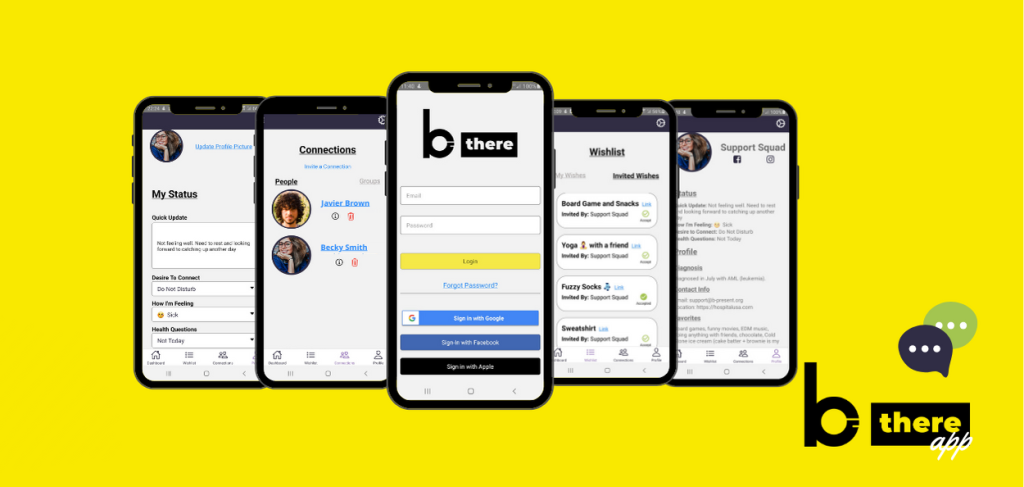
Overly Supportive Behavior During Cancer: The Fine Line
When a young adult is diagnosed with cancer, it upends their life and sends shockwaves through the lives of those around them. In our eagerness to support, we may unintentionally cross into overly supportive territory, potentially leading to unintended consequences. At b-present, we are dedicated to guiding our community in refining their support strategies to enhance the well-being of young adults facing cancer.
Our Supporter Roadmap helps young adult support networks navigate this difficult time. It emphasizes the importance of understanding how our loved ones want to be supported before organizing and offering support. Understanding their needs and boundaries ensures they get the support they need when they need it. It mitigates the added stress that comes when well-intentioned but unhelpful support is offered.
Recognizing Overly Supportive Behavior
Overly supportive behavior, rooted in love and concern, can become overwhelming. Understanding these tendencies is crucial for adopting a more mindful approach to support.
The Constant Caregiver
Consider a scenario where help is non-stop. Meals are always ready, and every conversation revolves around health updates, often overwhelming the individual seeking normalcy and autonomy.
A Real-Life Example: Sarah’s Story
Sarah, 25, recently diagnosed with cancer, is enveloped in a wave of support from friends and family. Her best friend, Emily, becomes the epicenter of this support, organizing meal trains, group chats, and social media campaigns to rally support. Initially comforting, this barrage of support soon becomes suffocating for Sarah. She begins to feel like her personal challenges have turned into a public spectacle, limiting her ability to express her true needs and feelings.
Emily’s well-meaning actions highlight a common pitfall of overly supportive behavior: the overwhelming intensity and volume of support can block the individual’s own needs, leading to stress rather than comfort.
The Optimism Overload
Demanding optimism, with constant reminders to “Just stay positive” or assurances that “Everything will be fine!” can pressure the individual to mask their true emotions, intensifying feelings of isolation.
The Rallying Cry
Attempts to demonstrate support with public displays or social media initiatives can unintentionally turn private struggles into unwanted public affairs, heightening the discomfort of your loved one. It is important to honor the privacy boundaries of the person diagnosed and not overshare without their approval.
Join our #SupportSquad
Want to learn how to be the best supporter you can be? Sign up to get access to free resources, tips, and stories from those who’ve been there.
The Unintended Consequences of Being Overly Supportive
The results of overly supportive behavior can deeply affect the mental and emotional well-being of young adults with cancer.
Increased Stress and Anxiety
The relentless focus on positivity and recovery can increase stress, placing an unnecessary burden on the individual to update, thank, and reassure their supporters.
Loss of Personal Space and Identity
Overly supportive actions that overlook the need for privacy and autonomy can amplify the loss of self, pushing the individual to yearn for interactions that transcend their illness. The b-there connection & support app helps minimize unwanted or misaligned interactions by helping supporters know how and when to show up, or when to give space.
Strained Relationships
When support becomes overbearing, it can strain relationships, leading to withdrawal and isolation at a time when genuine connection is crucial.
Navigating Support with Sensitivity
Identifying the delicate balance between being supportive and overly so is essential. Support should respect boundaries, embrace the full spectrum of emotions, and sometimes, simply provide a quiet, unassuming presence that respects the individual’s need for empathy, authenticity, and normalcy.
Offering Support without Overstepping
Gestures like sending a no-pressure message or engaging in non-cancer-centered activities can be profoundly supportive, acknowledging the individual’s struggle while respecting their autonomy.
Creating a Safe Space for Authentic Expression
Fostering an environment of open, judgment-free communication allows individuals to express their true feelings, ensuring they feel heard and understood without the pressure to appear strong.
Striking the Right Balance
Supporting a loved one with cancer can be scary and overwhelming, but your loved one needs your empathy and understanding now more than ever. By being mindful of our approach and sensitive to the unique needs and boundaries of young adults, we can offer support that truly uplifts, empowers, and most importantly, respects the individuality of each person’s cancer experience.
At b-present, we are committed to cultivating a community of support grounded in intention, empathy, and genuine connection. We invite you to join us in rethinking how we support young adults with cancer, ensuring our actions and words provide upliftment without overwhelming.
Learn more about supporting a friend:
- Learn how to b-there for your friend with cancer
- Download the Supporter Roadmap
- Follow us on Instagram
- Learn more about the b-present Foundation

